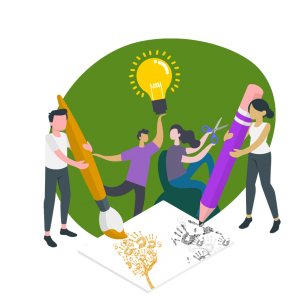Rethinking EuroMed

The session focuses on Euro-Mediterranean area with its richness and diversity of understandings, realities, development and as a shared concept and space with a common history and a shared future on the one hand and Euro-Mediterranean identities and senses of belonging on the other hand.The session concludes with a vision on how EuroMED should be in 2025, taking into account the following dimensions: social, economical, political, environmental and cultural aspects of citizenship.
The session starts asking participants to share objects that for them represents “My EuroMed”
In a round participants share the objects they have brought alongside linking them with Euro-Mediterranean and what it means to young people they are working with.
In this second part of the exercise facilitators propose an interactive presentation of multiple images on how EuroMED is perceived by young people (link with previous exercise) and other ideas/maps enlarging the discourses around it and making it more complex and elaborated.
Rethinking EUROMED:
In this part of the exercise, participants are requested to imagine in a “possible/realistic” wishful thinking how should the Euro- Mediterranean be in 10 years time. The question could be: As citizens, where do you want to move towards?
Participants form “expert groups” according to five citizenship dimensions: social, cultural, economical, political and environmental aspects to be considered. Participants choose the groups according to their preference.
After 45 minutes of discussing the main points, groups receive instructions on how to present their arguments making use of visual support (poster/collage/... installations with the flipchart of main of points).
Presentation of the results:
Each “expert group” gets few minutes to present the results of their discussion on the five citizenship dimensions: social, cultural, economical, political and environmental aspects.
The main ideas are written in a parallel flipchart. Participants pass through the 5 presentations and write questions/concerns/ comments on post-it in each poster.
Comments are discussed in plenary and kept for further work within the group.
At the end the facilitators debrief and extract the final conclusions on the workshop. Potential guiding questions could include:
Did you observe similarities? Which ones?
Did you observe differences? Which ones?
What were the main points presented that surprised you? Are there controversial points that you would like to further explore? Which ones?
This exercise is though as a “starter” of reflection about different perspectives around the Euro-Mediterranean area. It should be followed by activities going deeper on the discovering of intercultural citizenship.
As the flow of the whole activity is long, facilitators can decide to split it in different sessions. It is important however take the proposed steps as it allows participants to gradually construct their own reflections.
Besides following this activity with further workshops, participants could reflect upon their own community, or even make a research about it.
Would all groups in our society share the same views on intercultural citizenship in the Euro-Mediterranean area?
Are there any mainstreaming opinions in our community? From where these mainstream opinion is coming? Would they feel more comfortable with other approaches?